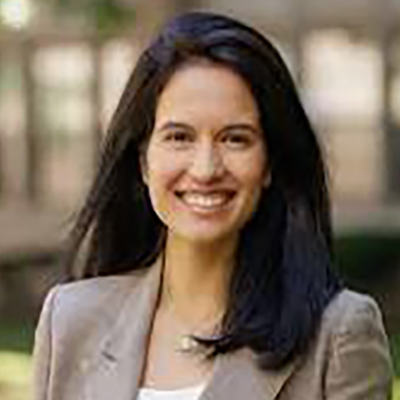Fordham Gabelli School Ethics in Business Reading Group
In addition to the Fordham University Gabelli School of Business Ethics in Business Seminar Series, which convenes thought leaders for public presentations around normative business ethics, we also host the Ethics in Business Reading Group. The Reading Group is a pre-read applied ethics paper workshop. After full drafts of papers are circulated among ethics faculty members, we convene with the author to provide constructive comments to improve drafts and prepare them for journal submission.
By participating in the Reading Group, we all commit to respecting the intellectual property of the author. Consequently, we commit not to use, share or quote any of the in-progress ideas (unless we have explicit permission from the presenter).
Next Reading Group Workshop
Check back soon
Past Reading Group Workshops
February 8, 2024
Side-Channel Compliance
-
The chief goal of corporate criminal law is to prevent crime. Enforcement authorities, business leaders, and academics all agree that “effective compliance” is the most reliable tool for getting employees to obey the law. It usually involves systems and processes—employee training, quality audits, reporting channels, etc.—targeted at the violation of concern. Long-standing federal guidelines instruct prosecutors and judges to offer lenient treatment to corporations with effective compliance and to compel corporations without effective compliance to implement it. Despite its name, effective compliance is disappointingly ineffective. Corporate crime increases yearly, and corporate recidivism is the order of the day. This paper proposes, theoretically motivates, and empirically validates a counter-intuitive approach: side-channel compliance. The basic idea is that corporations could positively impact employee behavior indirectly through institutional commitments to unrelated pro-social endeavors. For example, a corporation that worries its employees will engage in bribery could reduce the risk of violations by becoming a leader in gender equity or ecological stewardship. Side-channel compliance might work by raising the reputational costs of misbehavior or by inspiring employees to consider the social impact of their business decisions. As proof of concept, the paper reports a novel study of corporate criminals’ scores on various ESG metrics. The study demonstrates that lower scores correlate with criminal propensity. Side-channel compliance should be a welcome, even if unexpected, tool to combat corporate crime.

Mihailis Diamantis, Ph.D.,
Ben V. Willie Professor in Excellence, University of Iowa – College of Law; Professor (by courtesy), Department of Philosophy.
Mihailis Diamantis’ legal research focuses on corporate crime, law and technology, and legal theory. He is concerned with how emerging technologies and familiar concepts like mens rea shape corporate incentives. He also writes about privacy law and surveillance.
Professor Diamantis has a courtesy appointment with the Department of Philosophy. His philosophical writings cover a range of topics from action theory, to moral psychology, to experimental philosophy.
Prior to joining the faculty at Iowa, Professor Diamantis was a visiting professor at Columbia Law School. He clerked on the Ninth Circuit Court of Appeals and worked on white-collar investigations as an attorney at Debevoise & Plimpton LLP.
December 8, 2023
Allocating Power, Through AI Decision-making. The Ethics of Care Approach
-
The introduction of Artificial Intelligence (AI) to accelerate and automate decision-making has strained the standard ethical approaches to understand the ethical issues around business, work, and employment. Unique attributes of AI and AI research – reinforcing power dynamics while further marginalizing vulnerable stakeholders; surreptitious yet pervasive data collection— directly create ethical issues regarding the dispersal of power and control in society. We argue that questions of power and control, particularly in regard to terms of work and business decision-making, can be better addressed through an ethics of care approach that raises the voice of marginalized stakeholders by prioritizing the relationships between actors and their unique vulnerabilities and circumstances. The goal of this article is to critically examine AI and its ethical implications in terms of work and business, with a focus on the harmful exercises of power and marginalized groups. We will identify key ethical issues related to vulnerable stakeholders and the use of AI and propose the ethics of care as an ethical framework to approach these issues.

Carolina Villegas-Galaviz, Ph.D.,
Postdoctoral Research Associate at the Notre Dame – Technology Ethics Center (ND-TEC)
Carolina Villegas-Galaviz researches artificial intelligence ethics. Her expertise is in ethics and the philosophy of technology, with a particular interest in applications to business & society and business ethics scholarship. She’s a recipient of the Society for Business Ethics Founders’ Award (2020, 2022) and her work has been published in venues such as AI & Society and the Journal of Business Ethics Education. Her current work concerns AI and management decision-making. She studies how AI impacts several stakeholders, creating distance between those using AI and those being impacted by the technology. One of her main projects advances the use ethics of care to analyze the ethical implications of AI decision-making.
November 15, 2023
The Engineer and the Physicist: A Comment on Joseph Heath and the Market Failure Theory of Business Ethics
-
In this paper, I critique Heath’s market failures approach as incomplete, although immensely valuable. I will argue that while his description of free markets as an engine of economic efficiency is correct, he misunderstands the nature of business by taking the efficiency-enhancing aspect of business as fully describing the whole of business. Business, I will argue, does not exist as a stand-alone social institution but rather, business emerged from and remains embedded in the complex social life of communities. Business transactions do not take place in a hypothetical “noplace” – the ceteris paribus world of economic theory – among participants each of whom (like electrons) is indistinguishable from one another and whose only characteristic is that each is a profit-maximizing entity. Rather business takes place in a particular community with a particular “custom and usage” among participants who are flesh and bones human beings with unique histories and characters in relationships of trust with one another. Business ethics then must recognize that its raison d’etre is to provide advice to real businesspeople conducting business in real communities composed of human beings, not to economic bots operating in game space. To accomplish this aim, business ethics must draw both from the norms of fair competition that Heath identifies, as well as from other norms present in business relationships that reflect other values.

Robert Mass, Ph.D.,
Candidate in Philosophy at The New School for Social Research; Former International Compliance Head at Goldman Sachs
Robert Mass’s primary research area is in business ethics. His research on ethics in finance has been published in Oxford Review of Economic Policy, and his public-facing work has been published in venues such as the NYU Law’s Compliance & Enforcement blog and the New School Public Seminar. He has taught ethics, political philosophy, and business ethics for the last three years at Hunter College and regularly lectures in the ethics of finance at Stanford University’s School of Engineering, has guest lectured at Fordham on ESG, and was named an Emerging Scholar at the 2023 Conference of the Society for Business Ethics. He also has more than 25 years of experience in financial services, all spent at Goldman Sachs. There, he served as global compliance head of compliance for their sales and trading businesses, as well as international compliance head.
October 6, 2023
Diversity and Business Legitimacy
-
Justice- and profit-based reasons for diversity are familiar, but Adam Gjesdal defends an additional type of reason for diversity based on legitimacy. Legitimacy-based reasons hold that diversity is instrumental to justifying managerial power over stakeholder groups.

Adam Gjesdal, Ph.D.
Postdoctoral Fellow at Heterodox Academy’s Center for Academic Pluralism
Adam Gjesdal’s primary research areas are political philosophy and normative ethics, and he also has strong interests in moral psychology, aesthetics, and political economy. His research treats foundational moral diversity as an ineliminable feature of open, democratic societies. He works on how different institutions, ranging from the Supreme Court to private business firms, can become more legitimate by better reflecting this moral diversity in their decision making instead of ignoring it. His work has appeared in journals that include: Journal of Ethics and Social Philosophy, Australasian Journal of Philosophy, and Journal of the American Philosophical Association.
